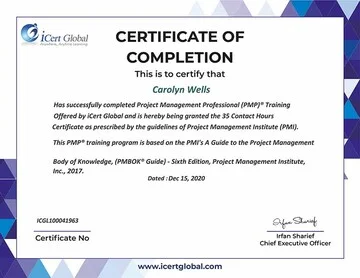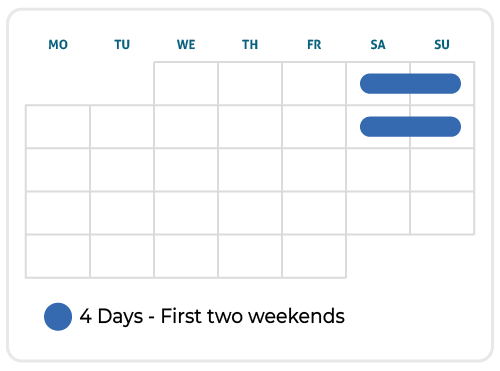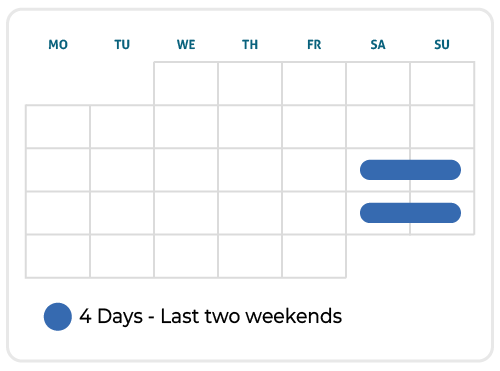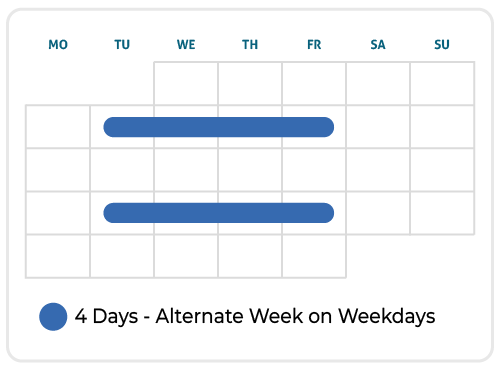PMP Certification Overview Abilene, TX
You're already managing projects?you just don't have the title. You're the one chasing stakeholders, fighting scope creep, and putting out fires, but you're still called a "Project Coordinator" or "Team Lead." Meanwhile, PMP-certified Project Managers are given formal authority, dedicated budgets, and command salaries 25-40% higher for applying the structured processes you're trying to implement ad-hoc. Your resume gets filtered out by HR bots scanning for "PMP," and internal promotions go to those who have it listed as "required." That stops now. This isn't another course designed to make you memorize the PMBOK? Guide. Our PMP Training Program is designed by battle-tested Project Management Professionals who have managed projects in the real world of Abilene, TX IT, construction, and manufacturing?environments with impossible deadlines, disengaged sponsors, and teams that don't report to them. They've built this program to teach you the PMP framework while showing you how to actually use it to control chaos when the project plan inevitably gets thrown out the window. Unlike certification mills that teach you only how to pass the exam, we build project leadership capability. You'll learn how to build a project charter that gets executive buy-in, create a Work Breakdown Structure that prevents missed requirements, and manage risk instead of just reacting to issues. The exam is just the proof?the real value is walking into your next project meeting and confidently shutting down out-of-scope requests, presenting a clear status report based on data, and leading your team with authority, not just influence. We've built this for working professionals who can't afford to stop their careers to get certified. Weekday evening and weekend batches, fully interactive with live Q&A. Every session recorded. Beyond the training, you get project charter and risk register templates you can use tomorrow, case studies from Abilene, TX services and infrastructure projects, 24/7 expert support, and end-to-end assistance with the notoriously difficult PMP application?where most aspiring candidates fail before they even get to the exam.
PMP Training Course Highlights ? Abilene, TX
PMI-Authorized Training Partner
Learn with confidence knowing your training program aligns with the official PMI standards and requirements.
Taught by Top-Tier Instructors
Unlock your potential with expert teachers who are PMI-certified professionals guiding you to success.
Flexible Schedule
Aim for the PMP certification and choose a training schedule that fits your time with options like weekday-evening, weekend only, or a full 4-day bootcamp.
Performance-Focused Training
Master the concepts fast with 35 hours of hands-on experience and individualized performance feedback through 10+ exam simulators.
Exhaustive Practice Materials
Get on top of your weaknesses with 2000+ tailor-made practice questions and mock tests.
24x7 Expert Guidance & Support
Be worry-free as industry experts are available 24x7 to solve your doubts and assist you at every turn.
Professional PMP Certificate

PMI Authorized Certificate
Upon successful completion of our PMP course, you will receive an official PMI-authorized certificate that is globally recognized. This certificate validates your expertise in project management and is highly valued by employers worldwide.
- PMI Continuing Professional Education (PDUs)
- LinkedIn Badge
- Lifetime Access to Updated Materials
Corporate Training

Ready to transform your team?
Get a custom quote for your organization's training needs.
Upcoming Schedule



Skills You Will Gain In Our PMP Training Program
Risk Management
Learn what can go wrong before it does. You will learn how to quantify potential impacts and create contingency plans.
Stakeholder Management
Master it or let it drag your project down. You will develop frameworks to manage competing interests, unrealistic expectations, and scope creep.
Resource Planning
Become efficient at managing resources that reflect reality. You will learn to estimate time, budget, and personnel needs based on historical data, and avoid guesswork.
Communication Structures
Get a grip on it before falling short. You will get templates and processes for status reporting, escalation paths, and documentation that keeps everyone informed.
Change Control
Realize that every decision can make or break your project. You will understand real processes for evaluating, approving, and implementing changes instead of saying ?yes? to everything.
Data-driven Decision Making
Cut through the noise for signal or rely on inconsistent gut feeling. You will learn how to use earned value management and other metrics to assess the scenario and take appropriate decisions.
Who This Program Is For
Project Managers
Program Managers
Senior Project Coordinators
Operations Managers
IT Delivery Managers
Consultants
If you lead projects and meet PMI's mandatory experience requirements, this program is engineered to get you certified.
PMP Certification Training Program Roadmap ? Abilene, TX

Why get PMP-certified?
Stop getting filtered out by HR bots
Get the senior-level interviews your experience already deserves.
Unlock the higher salary bands
Gain access to bonus structures that are reserved for certified project leaders.
Transition from tactical execution to strategic leadership
Gain a seat at the decision-making table.
Eligibility & Prerequisites
The Project Management Professional certification is globally respected precisely because it is not for beginners. PMI has established clear benchmarks to ensure every certified professional has a proven foundation in both formal project management education and real-world leadership. Here is the high-level breakdown of what you need to qualify.
35 Hours of Formal PM Training: A mandatory requirement that is fully satisfied by completing our PMI-Authorized training program.
Project Leadership Experience (with a Degree): A four-year degree plus a minimum of 4,500 hours (approx. 3 years) spent leading and directing projects.
Project Leadership Experience (with a Diploma): A secondary degree or diploma plus a minimum of 7,500 hours (approx. 5 years) spent leading and directing projects.
Course Modules & Curriculum
Lesson 1: Leading and Managing Teams
Effective leadership is crucial in project management. This lesson focuses on understanding various leadership styles, including directive and collaborative approaches, and applying them to diverse team settings. Learners will explore how to set clear goals, create a shared vision, and foster an environment of trust and collaboration to enhance team performance.
Lesson 2: Conflict Management and Negotiation
Conflict is inevitable in project teams, and managing it effectively is an essential skill for project managers. This lesson covers conflict resolution techniques, such as understanding the source and stage of conflict, analyzing the context, and implementing solutions. It also explores how to negotiate project agreements and build consensus in a variety of scenarios.
Lesson 3: Empowering and Developing Team Members
Project managers are responsible for empowering team members to reach their full potential. This lesson addresses the importance of appraising performance, offering constructive feedback, and fostering team member growth. Learners will also explore how to identify training needs and provide resources to support continued development.
Lesson 4: Emotional Intelligence and Team Engagement
Emotional intelligence (EQ) is key to managing team dynamics. This lesson teaches learners how to apply EQ to assess the emotional needs of team members and stakeholders. By adjusting communication and leadership approaches based on emotional awareness, project managers can engage teams more effectively and ensure smoother project execution.
Lesson 1: Planning and Managing Project Scope
Effective scope management ensures that a project stays on track and delivers the expected outcomes. This lesson covers methods for defining and controlling scope, including developing a work breakdown structure (WBS), monitoring progress, and preventing scope creep. Learners will also explore how to prioritize and validate requirements to ensure alignment with stakeholder expectations.
Lesson 2: Scheduling and Resource Management
Scheduling and resource management are critical for delivering a project on time and within budget. This lesson covers how to estimate task durations, manage dependencies, and create realistic schedules. Learners will also explore resource allocation techniques and budgeting strategies to ensure that resources are utilized effectively throughout the project lifecycle.
Lesson 3: Quality Management and Risk Control
Managing quality ensures that the project's deliverables meet the required standards. This lesson focuses on determining quality standards, monitoring performance, and recommending improvements. Additionally, it covers the risk management process, including risk identification, assessment, and mitigation strategies to minimize potential negative impacts on the project.
Lesson 4: Procurement and Communication Management
Procurement and communication are key to project success. This lesson explores how to manage procurement needs, select suppliers, negotiate contracts, and monitor supplier performance. It also emphasizes the importance of communication management, including how to define stakeholder communication needs, establish channels, and ensure timely and accurate information flow.
Lesson 5: Change Management and Integration
Change is inevitable in project management, and managing it effectively ensures project success. This lesson focuses on strategies for handling changes to scope, schedule, or resources. Learners will also explore how to integrate change management practices into project processes to maintain alignment with project goals and stakeholder expectations.
Lesson 1: Compliance and Regulatory Requirements
Compliance is a key consideration for any project. This lesson explores how to identify and understand the regulatory and compliance requirements that may affect a project. Learners will explore methods for addressing compliance issues and the potential consequences of noncompliance, ensuring that projects adhere to legal and organizational standards.
Lesson 2: Evaluating Project Benefits and Value Delivery
Ultimately, the success of a project is measured by the value it delivers. This lesson teaches learners how to define and measure project benefits and ensure that value is realized throughout the project lifecycle. Learners will explore how to communicate project value to stakeholders and demonstrate progress toward achieving organizational goals.
Lesson 3: Managing External Business Environment Changes
External factors, such as regulatory changes, technological advancements, and market shifts, can significantly impact project scope and execution. This lesson covers how to monitor these changes, assess their impact on the project, and adapt the project scope and deliverables to mitigate negative effects while capitalizing on new opportunities.
Lesson 4: Supporting Organizational Change
Organizational change can influence the outcomes of projects. This lesson focuses on how to assess organizational culture and determine how changes within the organization will impact the project. Learners will explore strategies for managing the impact of organizational change on projects and aligning project goals with the organization?s evolving needs.
Lesson 1: Understanding Agile Methodologies
Agile project management emphasizes flexibility and collaboration, making it an ideal approach for certain projects. This lesson introduces the key principles and values of Agile methodologies and compares them with traditional project management approaches. Learners will explore specific Agile frameworks, such as Scrum and Kanban, and understand when and how to apply Agile practices in various project environments.
Lesson 2: Hybrid Project Management Approaches
Many projects benefit from a combination of traditional (predictive) and Agile (adaptive) methods. This lesson delves into hybrid project management approaches, teaching learners how to blend the structure of traditional project management with the flexibility of Agile methodologies. By understanding how to integrate the two approaches, learners will be able to apply hybrid strategies to real-world projects effectively.
Lesson 1: Defining Project Charter and Scope
The project charter is the foundational document that outlines a project?s goals, objectives, and deliverables. This lesson covers how to develop a project charter, as well as techniques for managing and defining project scope. Learners will explore how to break down scope using work breakdown structures (WBS) and ensure that all deliverables are clearly defined and achievable.
Lesson 2: Risk and Resource Planning
Risk and resource management are essential components of successful project planning. This lesson teaches how to identify and assess project risks, develop mitigation strategies, and allocate resources effectively. Learners will also explore how to plan and manage resources to ensure that the project remains on schedule and within budget.
Lesson 1: Executing Project Plans
Executing a project plan involves managing people, resources, and tasks to keep the project on track. This lesson covers how to implement the project plan, manage day-to-day activities, and ensure that all project objectives are met. Learners will also explore how to manage stakeholder expectations and handle project constraints such as scope, time, and cost.
Lesson 2: Monitoring and Controlling Project Performance
Monitoring project performance is essential to ensure that the project stays aligned with its goals. This lesson covers how to track project performance using key metrics and performance indicators. Learners will learn how to take corrective actions when necessary to keep the project on track and how to manage deviations effectively.
Lesson 1: Project Closure and Handover
Project closure ensures that all objectives are met and deliverables are handed over to the client or stakeholders. This lesson covers how to successfully close a project, including validating that all deliverables meet the required criteria and ensuring that the project is formally completed. Learners will also explore how to conduct a final review and document lessons learned.
Lesson 2: Knowledge Transfer and Lessons Learned
Lessons learned and knowledge transfer are critical for future project success. This lesson focuses on capturing lessons learned during the project and sharing them with relevant stakeholders. Learners will also explore how to ensure knowledge transfer within the team to support future projects and continuous improvement in project management practices.





